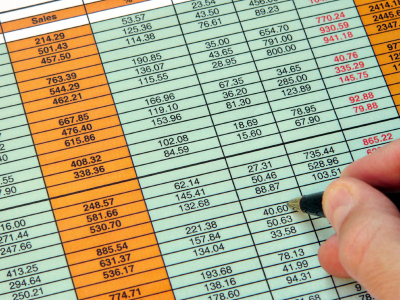Executive Sales Representative
 |
So, what do you do?
I promote the company's products to healthcare professionals which include general practitioners, nurses, practice managers and retail pharmacists.
What does your typical day involve?
My day usually begins with a 'card drop' at certain surgeries whereby I leave my business card with the receptionist and then call back after the morning clinic has ended. As the morning progresses I go to appointments (made earlier in the year) with GPs and nurses. At least two or three times a week I will have a lunch appointment at a surgery whereby I will do a presentation on my company's products to the attending GPs and nurses. The afternoon is spent continuing to see customers including retail pharmacists.
Do you work mostly on your own or as part of team?
I work as part of a team with 3 other colleagues who I meet up with once a week to discuss our objectives for that week. However a sales representative's job entails spending significant time on your own, whether on the road or waiting to see customers. This is an aspect of the job which some people find difficult to deal with.
What qualifications and experience do you have?
I have a BSc in Pharmacology from King's College London. I did A levels in Biology, Chemistry and Physics
When and why did you decide on a career in the pharmaceutical industry?
I wanted to find a career that made use of my degree. My father was a consultant paediatrician and he initially suggested the role of a medical sales representative. Once I spent a day shadowing a rep I realised this was, for me, a much more preferable alternative to working in a lab.
How has your career developed since you left university?
I briefly worked for two other companies before joining my current company. Although I have remained in primary care, visiting GPs surgeries, throughout my career I have had the opportunity to gain some experience in a few other roles including market research and promoting medicines to hospital staff.
Do you think additional qualifications or experience would be an advantage for someone entering the industry now?
Having a science degree is not a requirement but helps significantly in the understanding of the nature of this industry – however just as important is any experience which develops interpersonal skills and organisational skills. A career in medical sales will put you in front of different types of people on a daily basis and it's important to have the ability to communicate with these customers and develop rapport.
What are you most proud of in your career?
I have recently achieved the highest level (executive sales representative) within my current role, and last year I came in as number one rep in my division within the company.
What possibilities are there for your career in the future?
There are many opportunities within my company, from field-based roles such as hospital sales (which covers a number of therapy areas including some specialized roles like ophthalmic and HIV); healthcare which involves working at the primary care trust (PCT) level; sales management (managing a region of sales reps), or head office roles such as marketing, business planning and training.
What do you think are the most important skills for someone in your role to have?
Self-motivation, confidence, and an understanding of both people and the NHS.
What one piece of advice would you give to someone seeking a career in the pharmaceutical industry?
Spend as much time researching the industry and if possible, try to spend a day or two shadowing someone who works in the industry as that's the best way to gain some kind of understanding about what a career in the industry will entail.
Case study
 I became a rep because I wanted to do something more challenging.
I became a rep because I wanted to do something more challenging.
